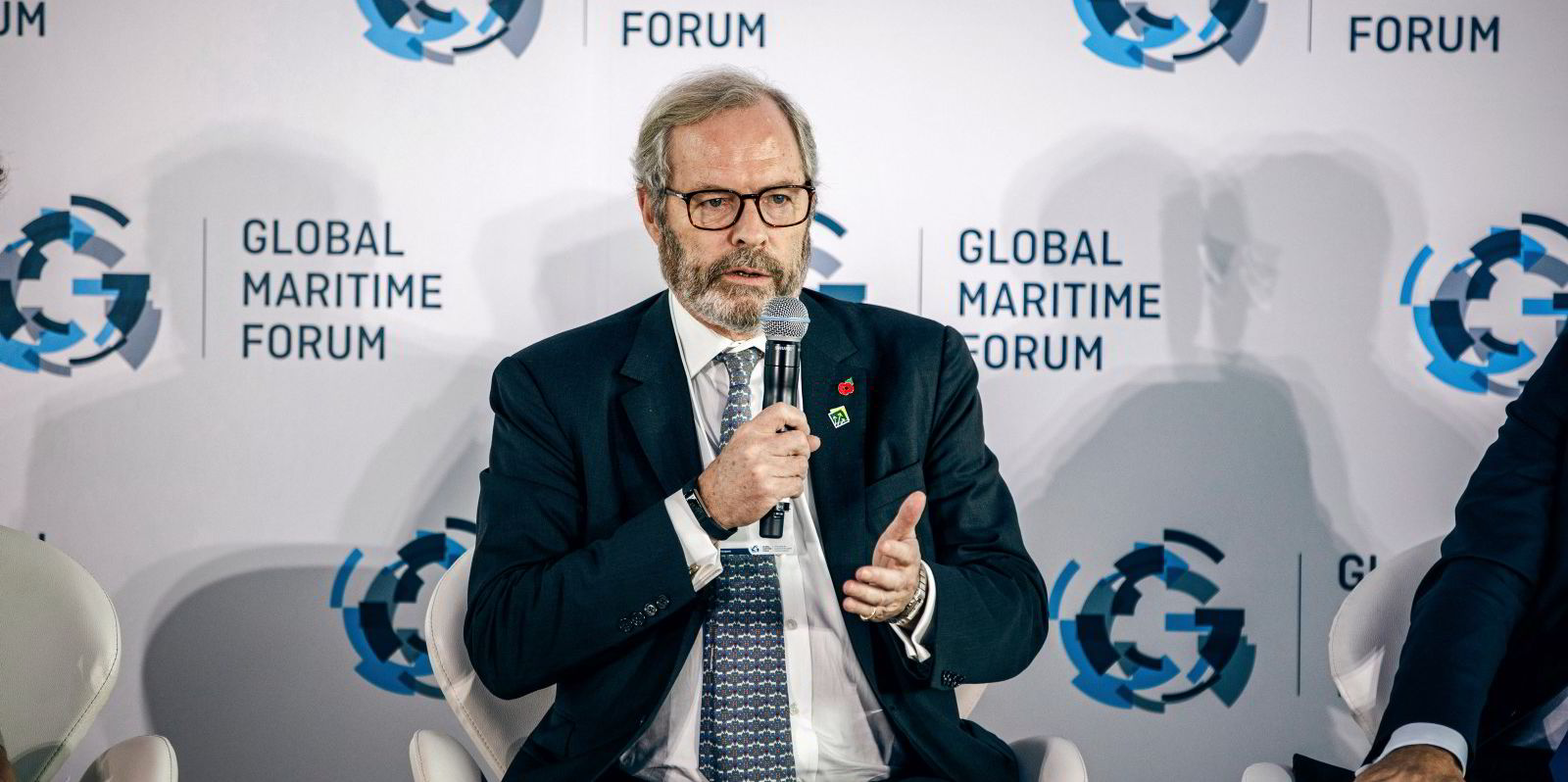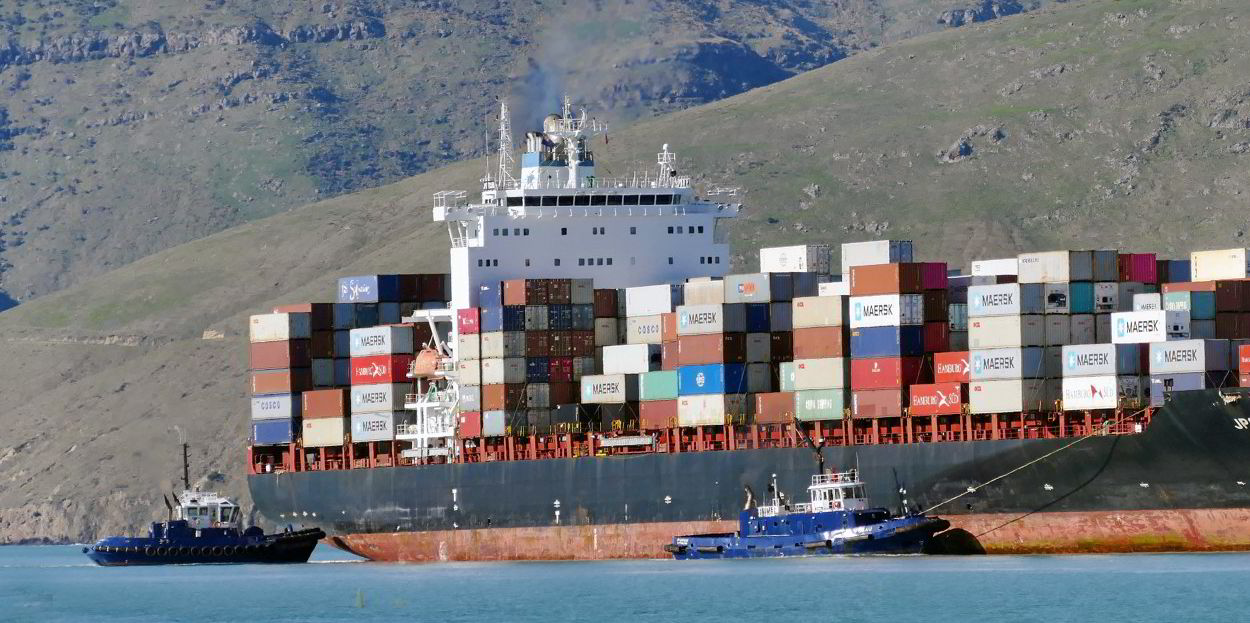Just one-in-four of the financial institutions signed up to a groundbreaking pledge to meet targeted global carbon emission cuts from shipping are on track.
Only seven of the 28 banks and lenders that reported data to the Poseidon Principles in 2021 were aligned with the International Maritime Organization’s ambition of reducing greenhouse gas emissions from international shipping by at least 50% by 2050. The number is lower than a year earlier when 11 banks were aligned with the target.
The newly published annual report from the organisation admitted there was a hard road ahead for the decarbonisation of shipping, but Poseidon Principles architect and chair Michael Parker said he was not discouraged.
“We are on a multi-year journey, but with this data we can see our performance, and support our decision-making with insight,” he said.
The average score was 9.7% above alignment in 2021, up from 7% a year earlier.
“Reducing greenhouse gas emissions has become a priority in the maritime industry, including for ship finance,” added Parker, who is chairman for global shipping, logistics and offshore at Citi.
“However, ships have a 20-plus year life cycle. It will take time for this trend to be reflected in our portfolios, even with the banks favouring low-carbon projects.”
Poor alignment recorded in the 2020 figures partly reflected the impact of the Covid-19 lockdown on the cruise industry. Passengerships were penalised in the methodology for continuing to burn some fuel in warm lay-up although not sailing.
The new figures for 2021 from 14 signatories disclose individual scores for passenger vessel portfolios, cargo vessels or both. Cruise ships were 46% on average above alignment where declared separately, while separate cargo vessel portfolios were nearly aligned at just 0.8% above.
“This data generally shows that Covid-19 continued to have a negative impact on the climate scores because of congestion and the slow recovery in the cruise business with much shorter cruises as the sector started to resume activity,” the Poseidon Principles said.
Vincent Pascal, head of shipping for Europe, the Middle East and Africa at BNP Paribas, said in the annual report that the Covid-19 crisis had a dramatic impact on the bank’s passenger shipping exposure.
“The relative performance of our predominant cargo shipping exposure is a better reflection of our clients’ and the bank’s efforts to act on the gradual decarbonisation of the maritime industry,” he said.
Christos Tsakonas, global head of shipping at DNB, said the Poseidon Principles have been instrumental in providing insight on the carbon intensity of the bank’s portfolio and the drivers fuelling it.
“They have enabled us to set ambitious targets and together with our clients start developing a road map for energy transition in the maritime industry,” he said.
DNB’s overall score was 13.8% above alignment, with its cargo fleet 5.4% over and passenger vessels 82.2% over.
The Poseidon Principles were launched with the support of the Global Maritime Forum in 2019 as an innovative collaboration between leading financial institutions to assess and publish the climate alignment of their shipping portfolios.
Its original 11 signatories have now grown to 30, claiming to represent around $200bn or 70% of global ship finance. While eight Asia banks are now members, there remain none from China.
Paul Taylor, global head of maritime industries at Societe Generale and vice chair of the Poseidon Principles, welcomed the five new signatories that reported their climate alignment for the first time in the latest report.
“We continue to receive strong support for data sharing and transparency among our clients, a sign that the Poseidon Principles have become an established and recognised initiative,” he said.
The organisation reaffirmed its commitment to aligning the framework with the ambition of the Paris Agreement to limit global temperature rise to 1.5C above pre-industrial levels. IMO targets are not Paris-aligned today.
“The banks will measure their climate alignment against this ambition once a Paris-aligned trajectory or trajectories are identified and officially adopted by the Signatories. Such a trajectory or trajectories have not been approved yet and are therefore not included in this year’s report,” Poseidon Principles said.
If a revised strategy is adopted by IMO in July 2023, the Poseidon Principles said it hoped to report against both a Paris and IMO aligned targets.
Delphine Gozillon, sustainable shipping officer at European clean transport campaign group Transport & Environment, said it is positive that the Poseidon Principles is mulling a revision of its ambitions.
“But without any concrete commitments this doesn’t mean much,” she said.
“There is already a proposal on the table from in the EU's Platform on Sustainable Finance that guarantees the ambitious and predictable pathway to zero-emissions, including reducing emissions by a third by 2030 and eliminating them by 2050.
“The European Commission must endorse these proposals and the Poseidon Principles must then adopt them without delay.”






